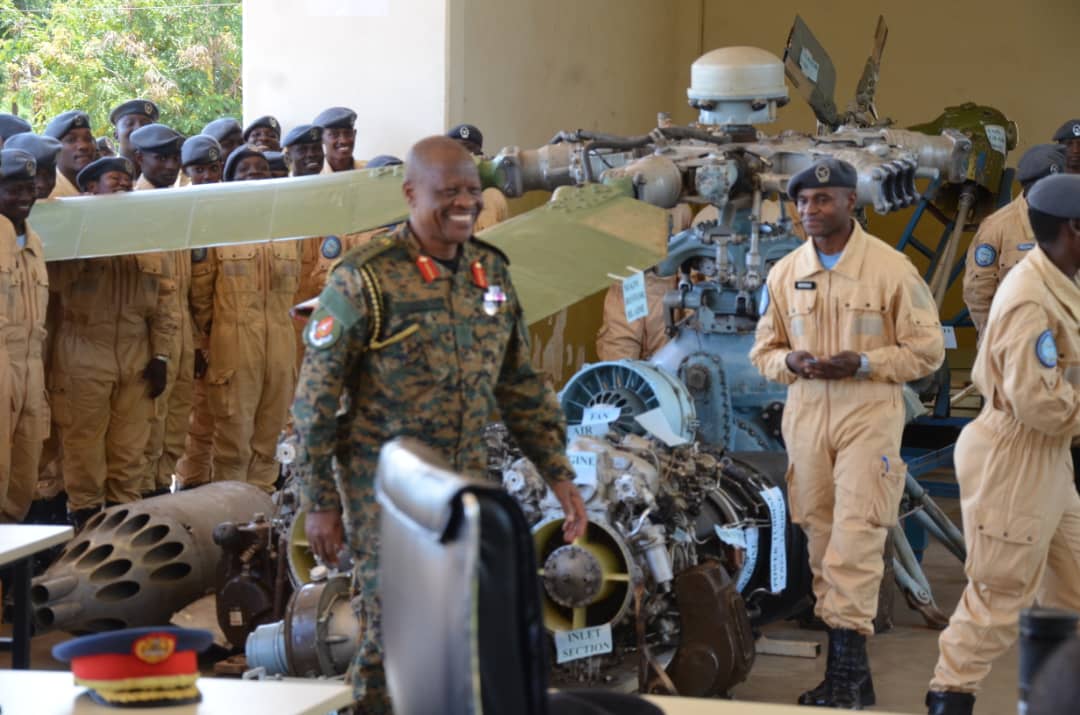News
Uganda Air Force College graduates engineers and officers
The Chief of Defence Forces, General Wilson Mbasu Mbadi, has presided over the graduation of fifty-two MI24 attack helicopter engineers, who completed an extensive thirty-six-month training program encompassing various aspects of electrical and aircraft/airframe maintenance at Uganda Air Force College in Nakasongola District.
Additionally, twenty-eight officers graduated after completing a six-month Officer Basic induction course.
In his address, Gen Mbadi emphasized the significance of conducting in-house training, carried out by proficient internal instructors. He noted that this approach aims to address the issue of training backlog, ensuring cost-effectiveness while maintaining high professional standards. Gen Mbadi pointed out that this training will substantially simplify aircraft maintenance, provided the graduates apply the technical skills and knowledge they have acquired.
Gen Mbadi further urged the officers to steer clear of detrimental behaviours that could tarnish the institution’s reputation, including fraud, corruption, and seeking unwarranted popularity. He stressed the importance of preserving one’s health and physical fitness for personal development.
Acknowledging the successful completion of the courses, the CDF extended his gratitude to the College’s Commandant, Chief Instructor Col Seguya, the instructors, and the entire college leadership. He commended their efforts in planning and delivering these courses, highlighting their value in providing high-quality training.
Brig Gen Stephen Kiggundu, representing Lt Gen Charles Okidi, disclosed that the Air Force leadership has initiated the integration of Uganda Air Force College modules into the Squadron Commanders Course syllabus. This step aims to align the standards of students in this course with those of Junior Command College in Jinja.
Col James Muhwezi, the Commandant of Uganda Air Force College Nakasongola, emphasized that training personnel within the country has significantly reduced the cost of sending Air Force personnel abroad for training. This cost-effective approach ensures that Air Force personnel receive comprehensive training while contributing to the institution’s self-sufficiency.





































